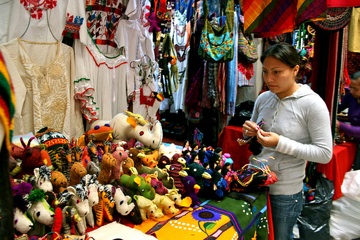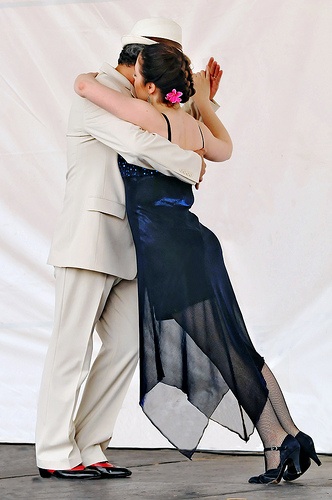The Cultural Impacts of Tourism: Does the UNESCO Intangibles Program Help or Hinder?

Human towers in Spain. Photo: flydime
Male oil wrestling in Turkey. Gingerbread craft in Croatia. Human towers in Spain.These practices, along with a Mediterranean diet, a French meal, as well as 41 alternative informative traditions were famous as 2010 UNESCO Intangibles.
The Intangible Cultural Heritage Program was created in 2003 to protect a worlds endangered traditions, including songs, festivals, performances, arts as well as crafts, as well as internal knowledge. Each year, countries commission prized informative practices for inscription as well as receive intensity entrance to funding.
The module is meant to safeguard traditions by swelling approval as well as fostering plans to pass them down to younger generations. In theory, a traditions should be recorded as seriously as a Pyramids of Giza or a Great Barrier Reef.
But critics have been beginning to subject a programs overall benefits. Some even challenge either it does more harm than good formed on a following factors:
1.Tourisms disastrous effects
Many countries commission a use assuming which approval is wholly a good thing. It increases tourism as well as generates income for tiny communities. However, research in Australia, Taiwan, as well as Italy suggests it can have a disastrous impact.

Art from Chiapas, sold in Mexico City. Photo: Julie Schwietert
Art as well as handcrafts might turn mass-produced for outsiders, who determine a objects cost as well as use. While this provides livelihood for locals, it separates a tradition from a original purpose as well as changes a skill set to produce it.
This happened in Italy where a single craftsman became so renouned he proposed producing whistles as tourist souvenirs rsther than than objects of genu! ine util ity.
The same goes for festivals as well as rituals, which turn commercialized events rsther than than expressions of a communitys rendezvous with a own traditions.
2.Bickering in between countries
A traditions begin can be fuzzy. Where did it start? Who can legitimately explain it? Its an emanate causing genuine tragedy in a little tools of a world.
Such tragedy arose in 2005 in between China as well as South Korea when a latter nation refused to share joint registration of a Dragon Boat Festival. China claimed which South Korea stole a culture as well as launched an anti-Korea Internet campaign. In 2010, a squabbling continued, evidenced by a new anti-China debate in South Korea.
Moreover, a use which instills honour in a single nation might provoke groans elsewhere. The French Gastronomic Meal generated hostility from European neighbors. President Sarkozy, who lobbied aggressively for a nomination, was criticized for stating, We have a best gastronomy in a world- during least from our indicate of view.
Some French food officials ask if gaining unsubstantial status was counterproductive, as it promoted a perception of French arrogance.
3.Changing criteria
Critics additionally claim which criteria have been apropos too broad, changing a concentration from identifying exposed traditions to compiling an exhaustive nondiscriminatory list. Called into subject have been new additions which might not be endangered during all.

Tango dancing; Photo: Dance Photographer
Tango dancing as well as Flamenco, which gained unsubstantial status in 2009 as well as 2010, have been two examples. Both have been undergoing a resurgence as well as evolving as their recognition soars. Tangos appeal, in fact, is so drawn out which a sweeping a Middle East.
Also, a little practices might not be informative traditions. The Mediterranean diet, in pa! rticular , is drawing fire.
Some argue which a idea of a diet is an epitome concept. While people might devour regional products, no a single follows a diet in an comprehensive form. In fact, a little regions of Spain, North Africa, as well as Greece dont really follow a diet during all. Critics ask how you can protect something if you cant even define what it is.
4.Commercial interests
In addition, a probable which blurb interests rsther than than refuge motivate countries to commission practices.
As for a Mediterranean diet, a nice to think which tiny farms or industries in Europe might be protected, but theres justification which bigger businesses will many expected benefit. Agricultural representatives of Spain, Morocco, Italy, as well as Greece pushed hard for nomination. And already, Greece a vital exporter of olive oil around a world, is using a UNESCO status to attract commercial operation from China.
An unfortunate actuality of a UNESCO Intangibles Program is which countries have been not uniformly represented.Some additionally be concerned which noticing a single diet over others might lead a little European communities to amalgamate their own internal products for tomatoes from Italy or olives from Spain.
5.Unequal representation
Finally, an unfortunate actuality of a UNESCO Intangibles Program is which countries have been not uniformly represented.
A quick peek during a 2010 lists reveals heritages of mostly Asian as well as European countries. Other regions of a world, such as Africa, arent represented during all.
The UNESCO Program acknowledges there is a rigorous office work process, which inhibits countries from following through. Sadly, administration department might prevent universe traditions many during risk from gaining appropriation as well as support.
Community Connection
All over a world, a little informative traditions survive a exam of time as well as a little naturally die out. Is it our responsibility to k! eep them alive? Share your opinions in a comments.
Comments